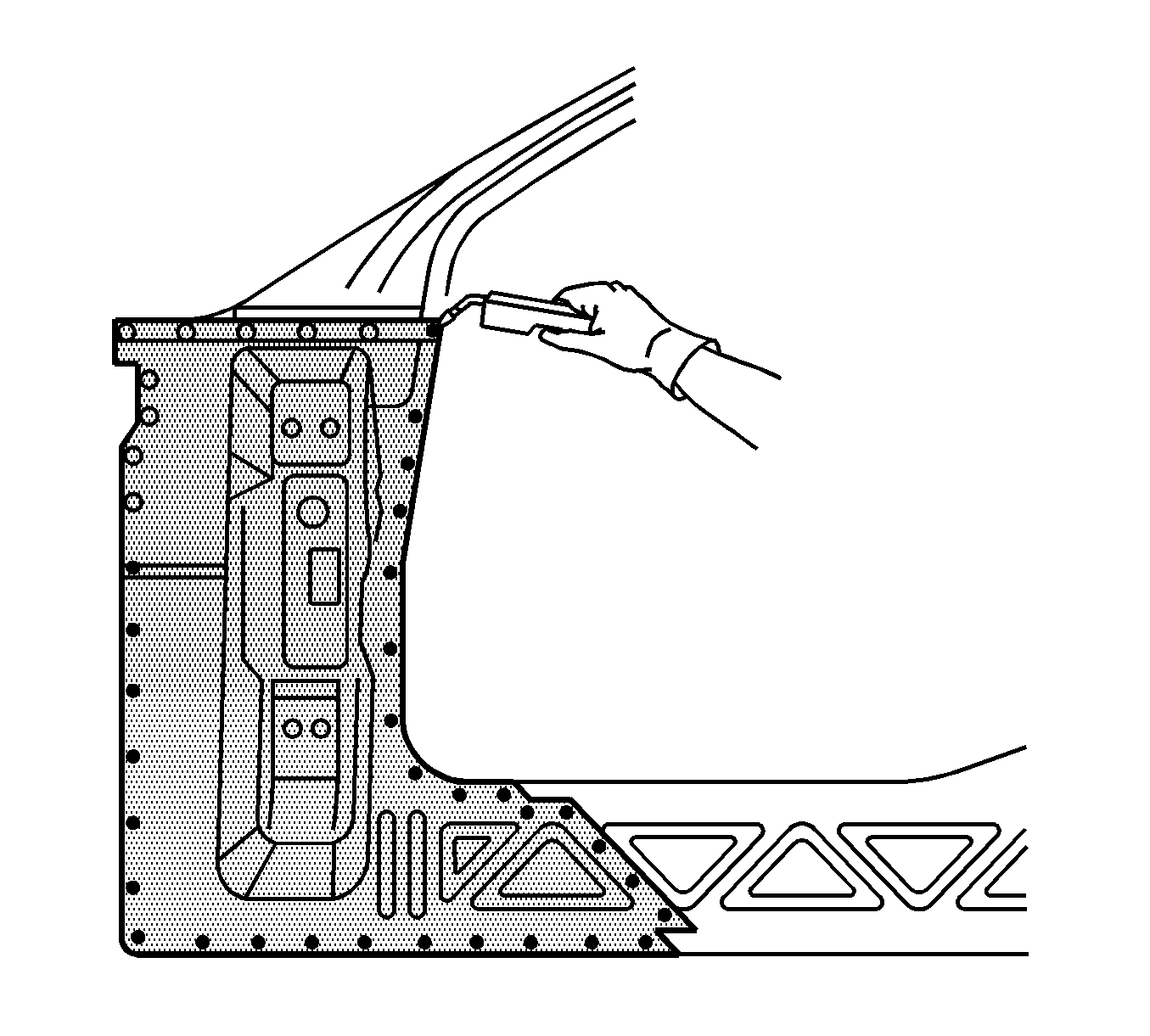Removal Procedure
Caution: Refer to Approved Equipment for Collision Repair Caution in the Preface section.
The full body side inner panel comes as a one-piece assembly and can be replaced at the factory seams after removal of the outer panels, the roof panel and the front and rear glass, any of these sectioning procedures can be performed separately or in any combination, depending on the extent of the damage to the vehicle.
Caution: Sectioning should be performed only in the recommended areas. Failure to do so may compromise the structural integrity of the vehicle and cause personal injury if the vehicle is in a collision.
- Disable the SIR system. Refer to SIR Disabling and Enabling in SIR.
- Disconnect the negative battery cable. Refer to Battery Negative Cable Disconnection and Connection in Engine Electrical.
- Remove all related panels and components.
- Remove the sealers and anti-corrosion materials from the repair area, as necessary. Refer to Anti-Corrosion Treatment and Repair in Paint and Coatings.
- Restore as much of the damage as possible.
- On the windshield pillar, measure down 19 mm (¾ in) from the base of the windshield pillar reinforcement. This is your section location.
- On the inner rocker panel, use the second triangular opening as your section location as shown.
- Cut the panel where sectioning is to be performed.
- Locate and drill out all factory welds. Note the number and location of the welds for installation of the service part.
- Remove the damaged inner hinge pillar.
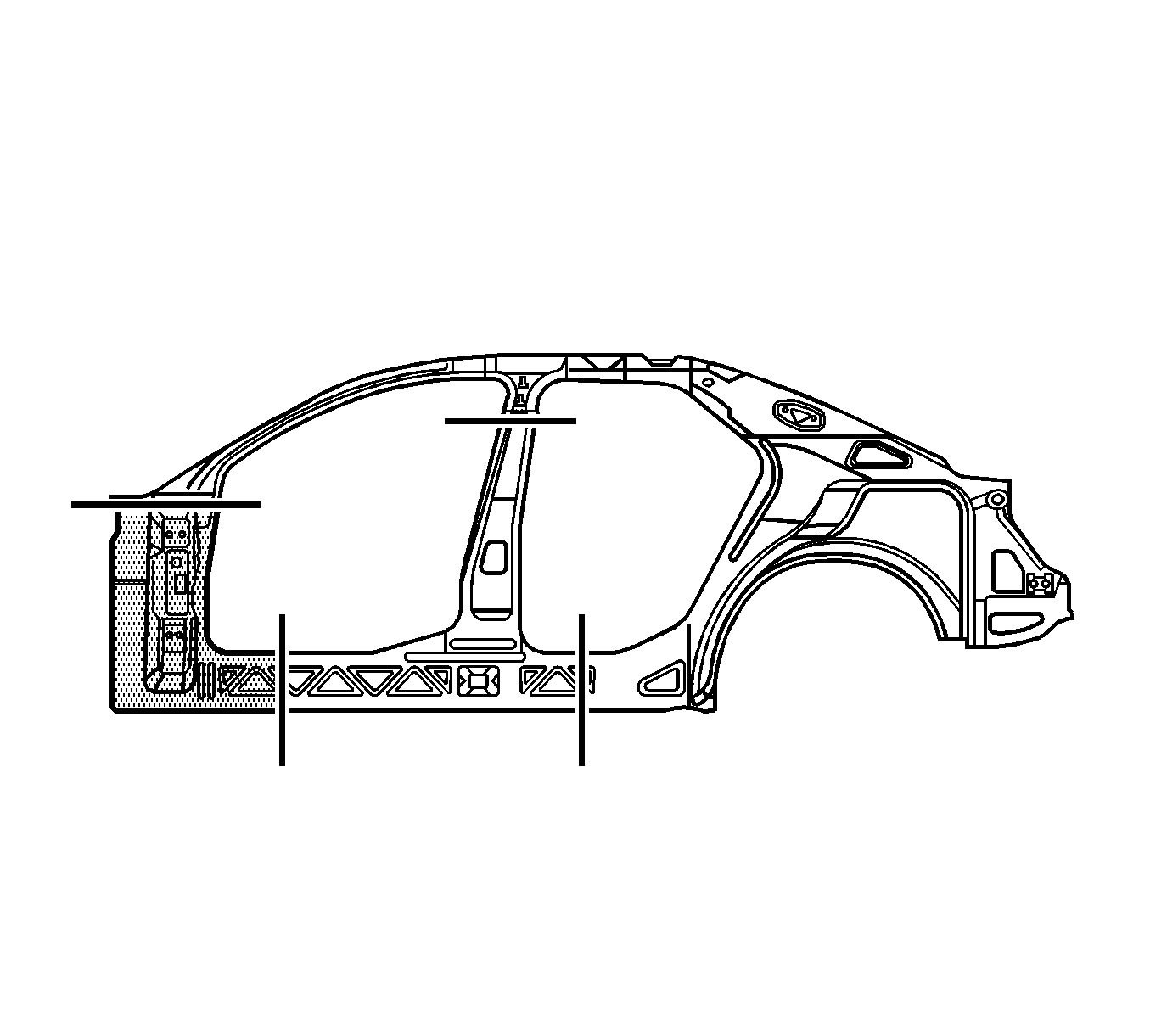
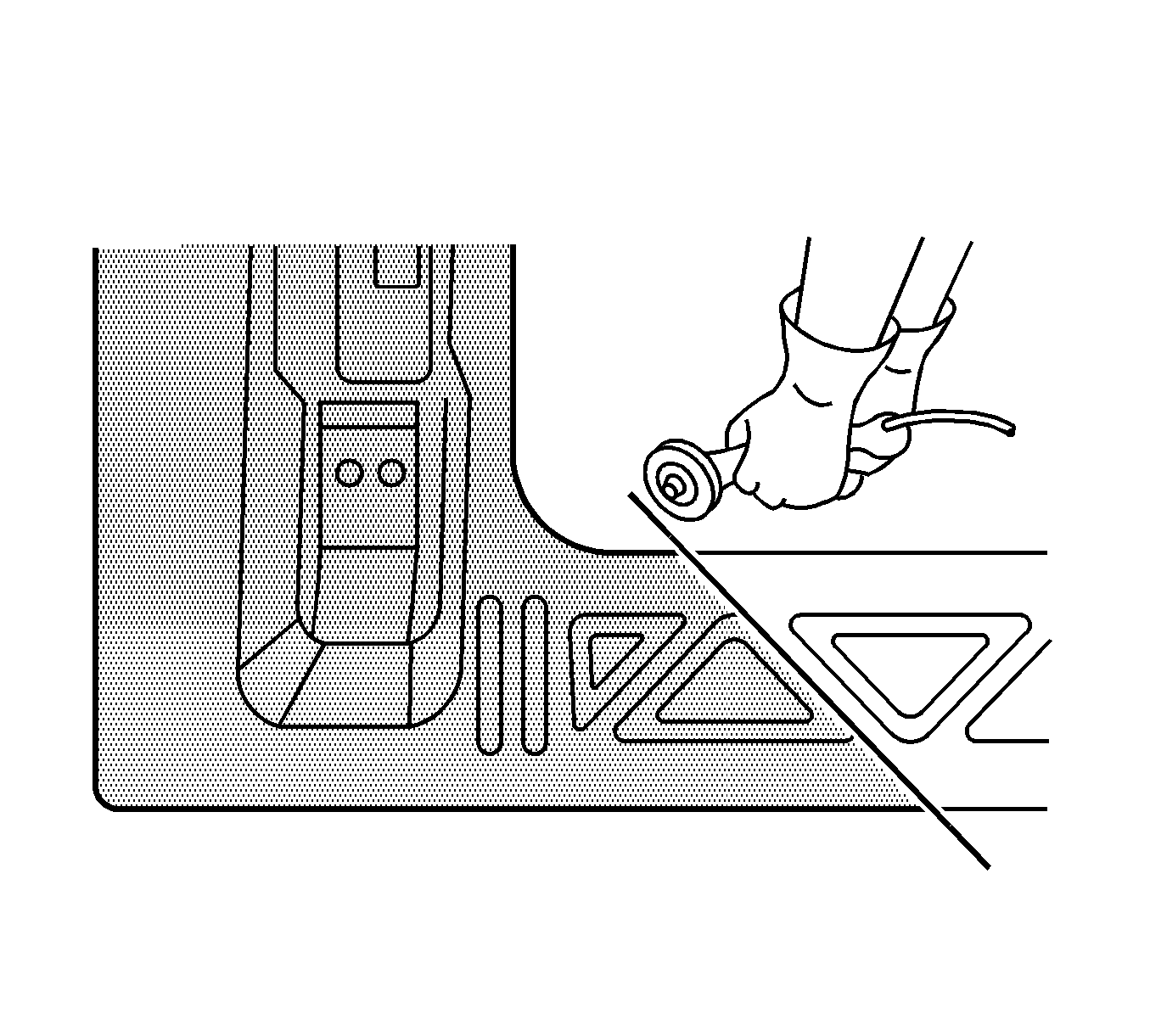
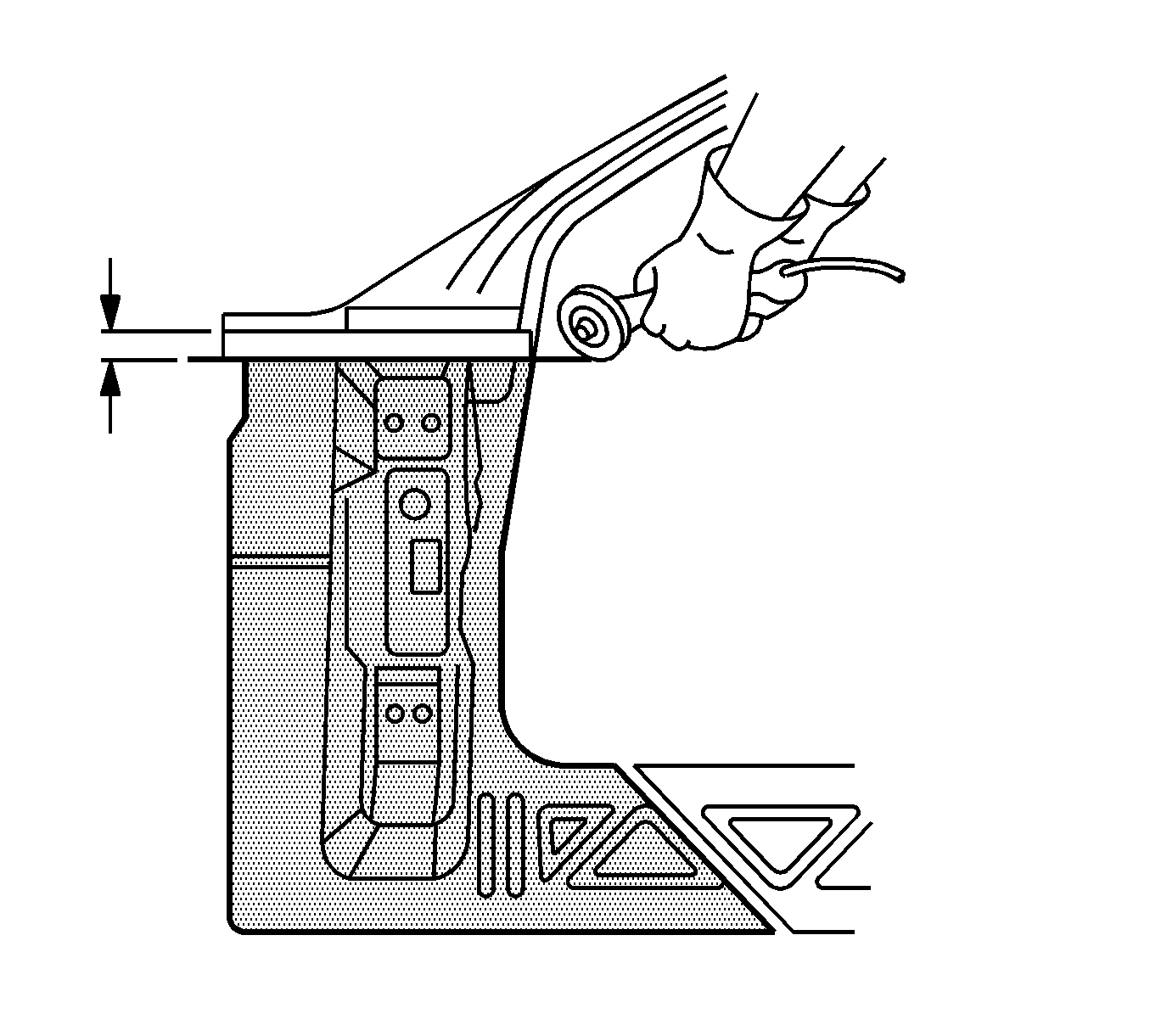
Important: Do not damage any inner reinforcements or panels.
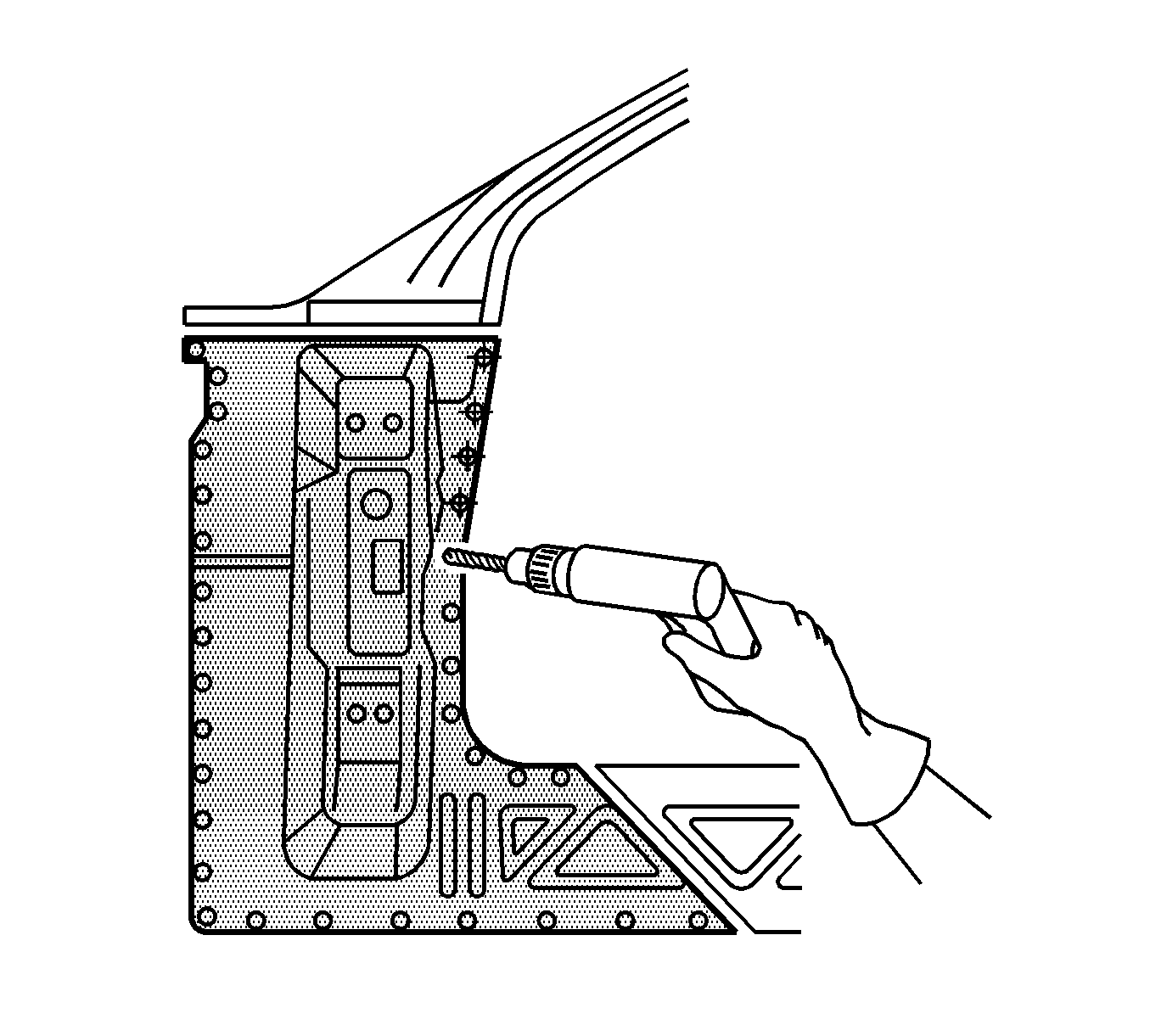
Important: Note the number and location of the factory welds for installation of the hinge pillar.
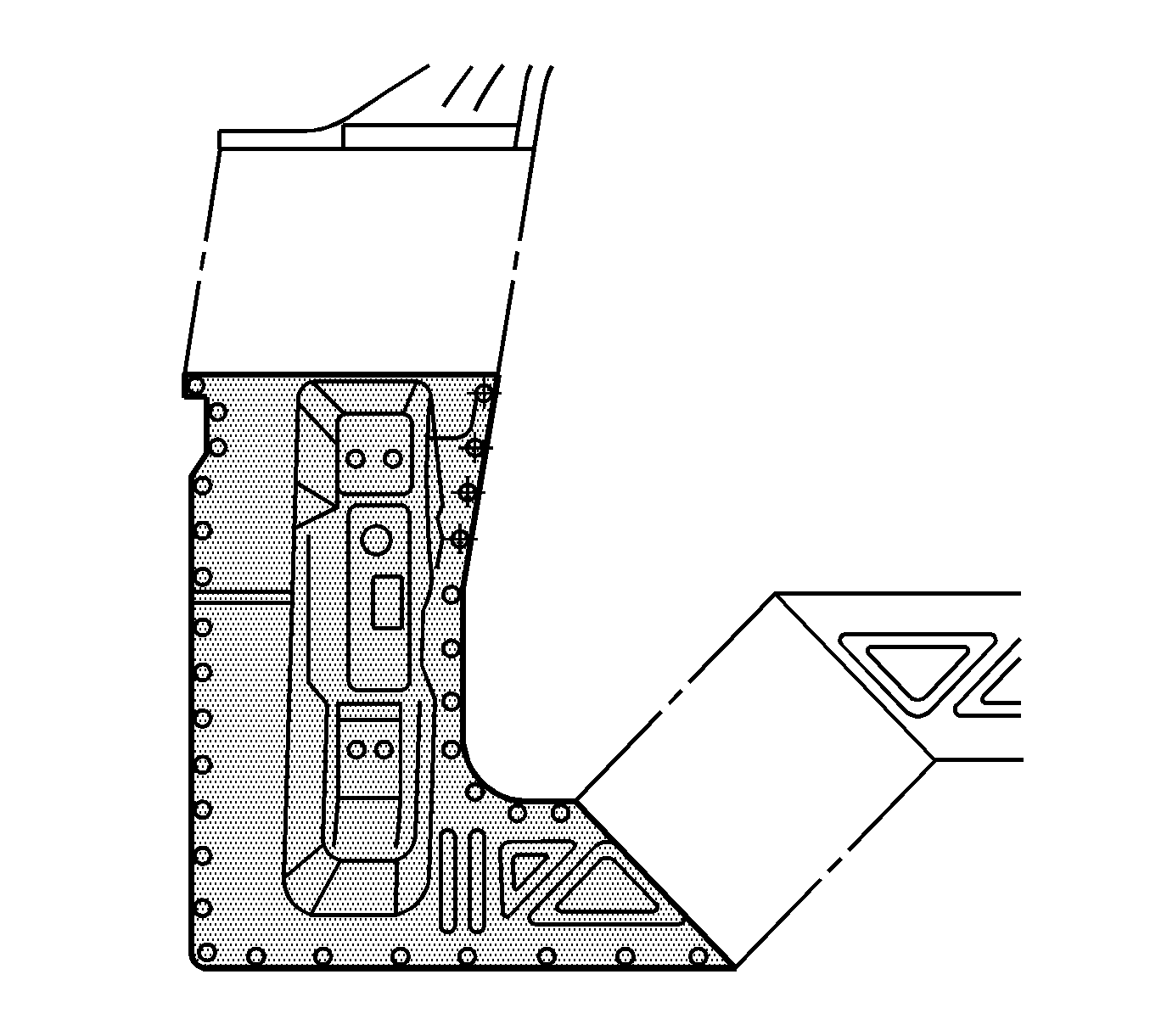
Installation Procedure
- Cut the replacement service part horizontally at the bottom edge of the outer windshield pillar reinforcement. In the door opening area, notch the flange for a flush fit as shown.
- Cut the replacement part vertically in the rocker panel area to allow for a full overlap as shown and notch.
- Drill 8 mm (5/16 in) plug weld holes in the service part as necessary as noted from the original panel.
- Prepare all mating surfaces as necessary.
- Apply 3M Weld-Thru Coating P/N 05913 or equivalent to all mating surfaces.
- Align service part using 3 dimensional measuring equipment. Clamp in place.
- Plug weld accordingly.
- To create a solid weld with minimum heat distortion, make 25 mm (1 in) stitch welds along the seam with 25 mm (1 in) gaps between them. Then go back and complete the stitch weld.
- Clean and prepare all of the welded surfaces.
- Apply the sealers and anti-corrosion materials to the repair area, as necessary. Refer to Anti-Corrosion Treatment and Repair in Paint and Coatings.
- Paint the repaired area. Refer to Basecoat/Clearcoat Paint Systems in Paint and Coatings.
- Install all of the related panels and components.
- Connect the negative battery cable. Refer to Battery Negative Cable Disconnection and Connection in Engine Electrical.
- Enable the SIR system. Refer to SIR Disabling and Enabling in SIR.
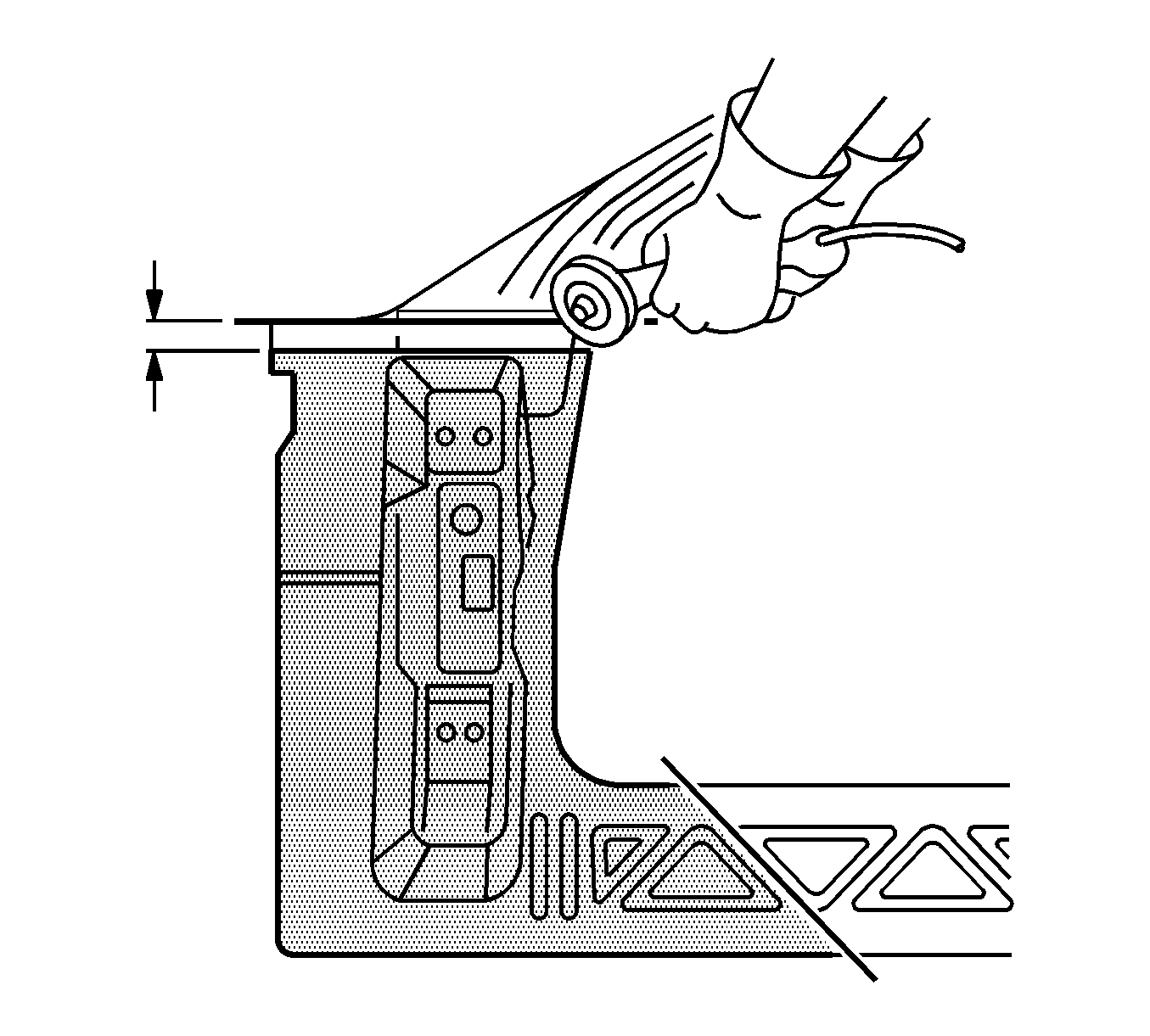
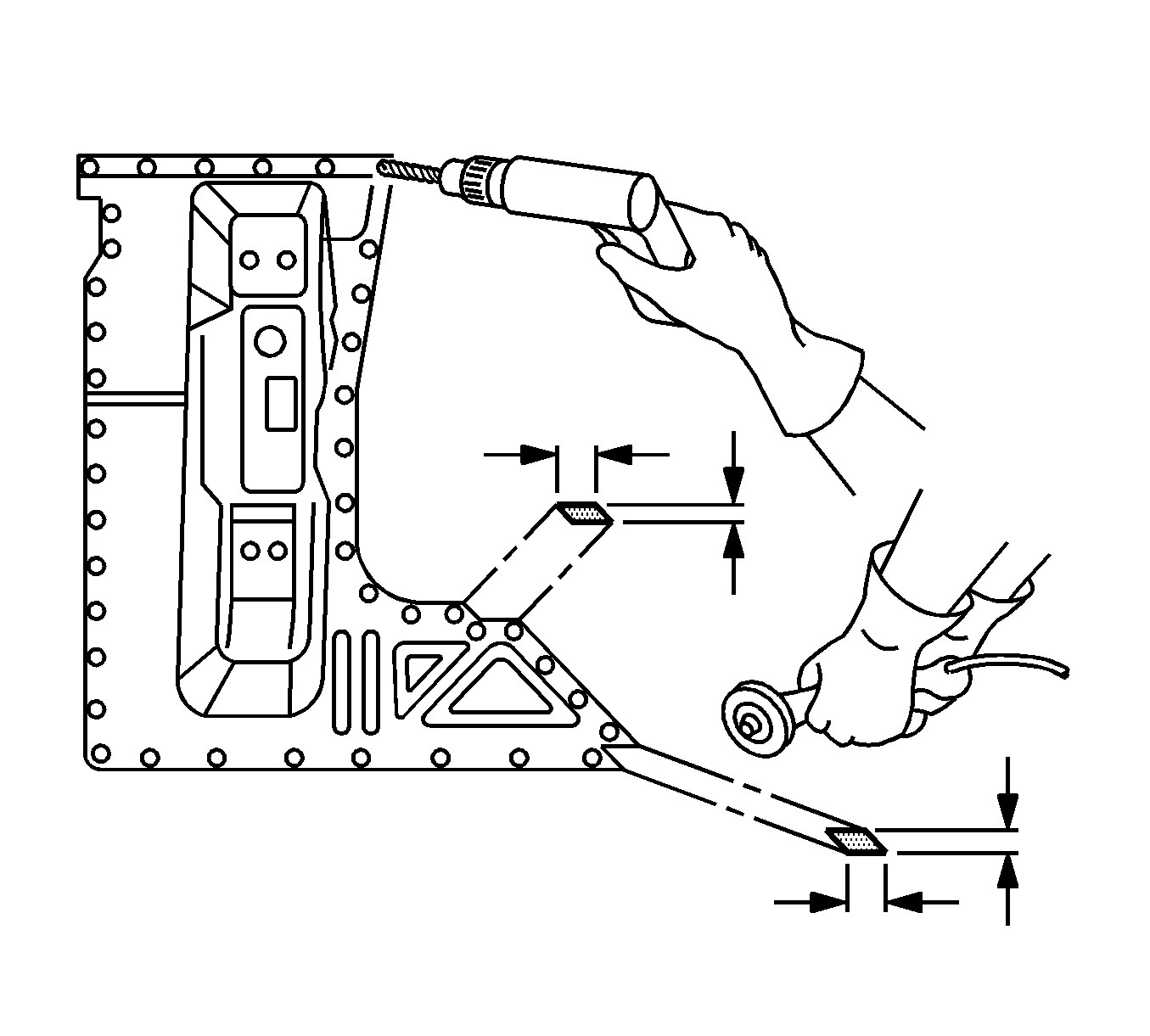
Important: If the location of the original plug weld holes can not be determined, or if structural weld-thru adhesive is present, space the plug weld holes every 40 mm (1½ in).
